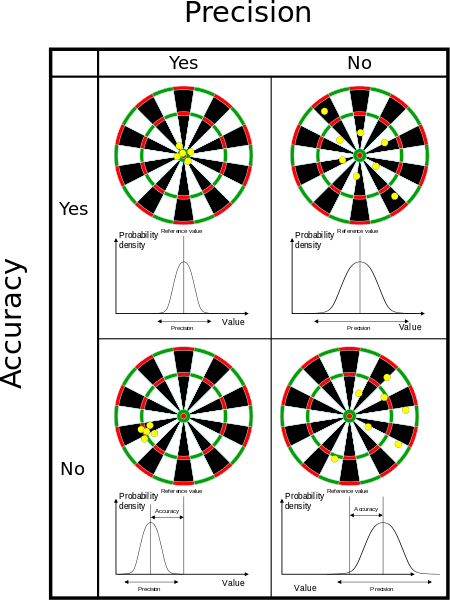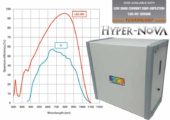Accuracy is a general term that describes the agreement between a measurement and a true value. Precision is a general term that describes how close measured values are to each other, if they are clustered or spread out. Accuracy is affected by both random and systematic errors, while precision is affected by random errors. To illustrate the difference, consider the wavelength calibration of the spectrometer. The true values for wavelength are provided by the calibration lamp, such as a mercury argon lamp. If the detector generated wavelengths are close to the known wavelengths, then the calibration is accurate. If the calibration is off by e.g. 5 nm (a systematic error), the calibration is not accurate. The precision in this case is the resolution, and it is independent of the accuracy. The difference is further illustrated in the figure below:

Attribution: By Arbeck – Own work, CC BY 4.0,





